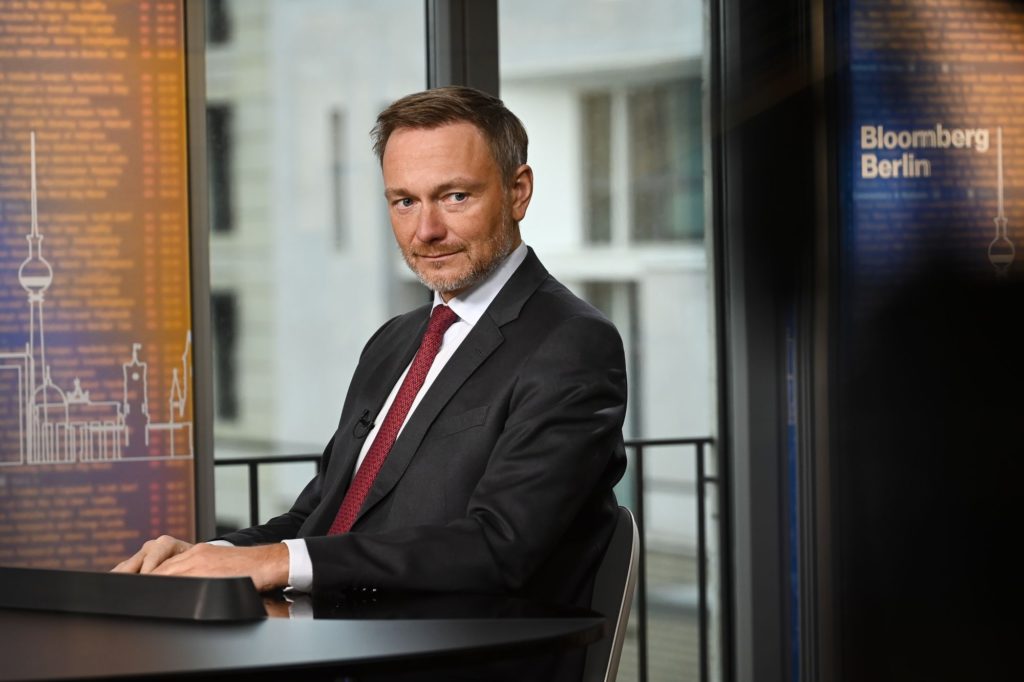German Finance Minister Christian Lindner urged Joe Biden’s administration to apply the principles of “friendshoring” to a recent package of green subsidies that has threatened to trigger a trade war between the US and the European Union.
(Bloomberg) — German Finance Minister Christian Lindner urged Joe Biden’s administration to apply the principles of “friendshoring” to a recent package of green subsidies that has threatened to trigger a trade war between the US and the European Union.
Lindner said he’s concerned that the US climate package known as the Inflation Reduction Act puts European companies at a disadvantage and called for “trade diplomacy” to find a solution. Friendshoring, under which nations with shared values cooperate in manufacturing and sourcing raw materials, is the right way forward, he added.
“Value partners should be preferred trade partners,” Lindner said Wednesday in an interview with Bloomberg TV.
“My vision is a free-trade zone of liberal democracies in the world and one of the first steps could be to improve the trade relationship between the United States and the European Union,” he said. “We would both benefit from this idea and I think there is an openness on the US side.”
Some of the rules governing the green subsidies have angered US allies in the EU and beyond. Germany and France urged the government in Washington this week to grant Europe the same exceptions enjoyed by nations that have free-trade deals with the US such as Canada and Mexico.
While Biden has said he sees room for tweaks to “make it easier for European countries to participate,” it still isn’t clear how the law might be revised or if that would even be possible. Republicans are unlikely to be willing to amend it after they take control of the House next year.
Lindner said he wants “waivers” for European companies and pledged to do everything in his power to avert a trade war.
“We need new free-trade agreements,” he told Bloomberg. “At least we have to make an effort to find a level playing field.”
–With assistance from Michael Nienaber, Christoph Rauwald, Petra Sorge and Josefine Fokuhl.
More stories like this are available on bloomberg.com
©2022 Bloomberg L.P.










